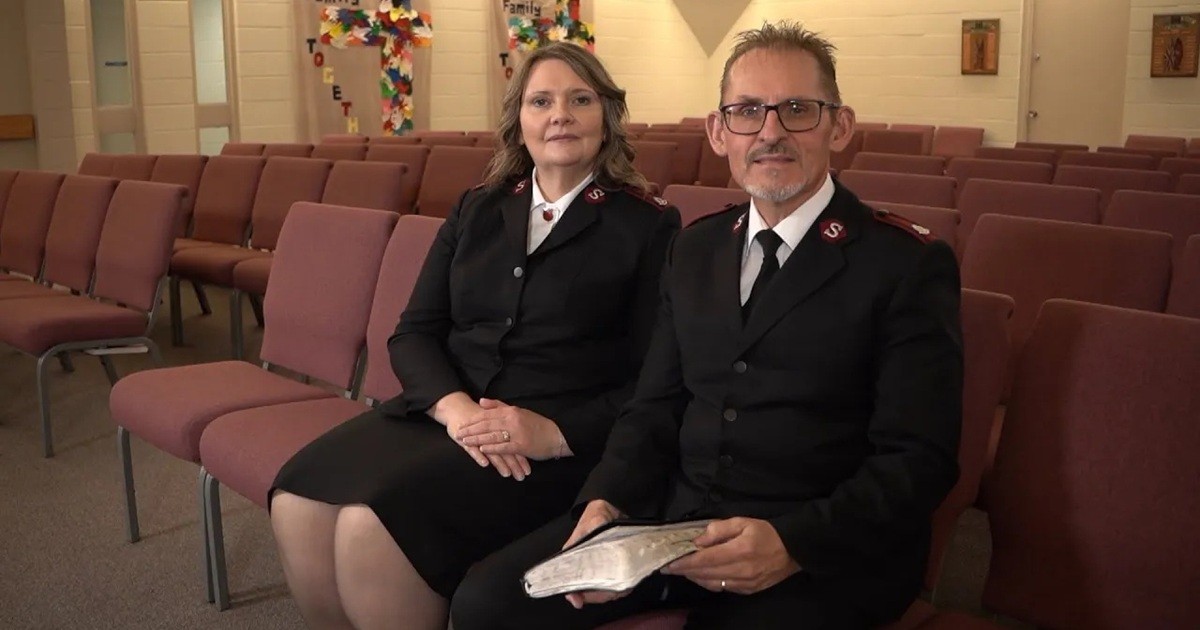In 1865, William and Catherine Booth found their destiny among the physically and spiritually poor in the East End of London, England. They shared the life-transforming gospel, encouraging an encounter with Jesus that affected one’s whole self, which leads to holy living. The Salvation Army looks and acts differently today than it did; however, it is by understanding our origins that we begin to comprehend what it means to be a Salvationist.
God often invites people to reflect on their beginnings to help them understand their present. The Gospel of John helps its readers understand the newness of life that comes from Jesus by drawing images from Israel’s history to demonstrate that God is doing and acting in a new and life-changing way. The purpose of John’s Gospel is found in John 20:31: “But these are written that you may believe that Jesus is the Messiah, the Son of God, and that by believing you may have life in his name.”
Karoline Lewis, author of a biblical preaching commentary on John, maintains that John’s Gospel is not about information—it is about an encounter. In Jesus, we are faced with the presence of God and our decision to believe makes a transformational difference.
In the first phrase of John’s Gospel— “In the beginning was the Word”—we are brought right back to the creative activity of God in Genesis. This is done with purpose, because the advent of Jesus means a new creation with a new understanding of our origins and the foundations of who we are.
Lewis highlights eight key theological themes in the first 18 verses of John, which act as a prologue to the book. These themes are unfolded throughout the rest of the Gospel. In brief, they are:
- The connection of Jesus to the creative activity of God.
- The origin story of Jesus.
- The primary role of the Word made flesh is to reveal God.
- Jesus, in John’s Gospel, is holding the human and divine together.
- The theological themes of light and darkness (belief and unbelief).
- Being a disciple means being a witness.
- Children of God are called to abide with God.
- God’s grace is revealed in abundance.
Early in the Gospel, we read, “Out of his fullness we have all received grace in place of grace already given” (John 1:16). In Jesus, we are confronted with the living grace of God that will provide for God’s followers. The Jesus we encounter in John’s Gospel will supply all our needs.
This is sacramental living. It is an encounter with the living God, through Jesus Christ, who challenges us not only to believe but also calls us into a belonging relationship with God’s own family. A relationship that will transform us into children of God, who are blessed to be a blessing (see Genesis 12:2-3).
During the rest of this series, we will examine a specific encounter with Jesus according to one of the theological themes in John’s Gospel. We will be looking to Jesus, who embodies God to humanity, and how we, in turn, are called to embody God’s message to the world. We will then see concretely that Christians are called to live sacramentally. Just as John’s Gospel turned to creation to describe the new things that were happening in Jesus Christ, we will turn to the beginnings of The Salvation Army to see what it means to live sacramentally as a Christian in the Army.
The four themes from John will call us to be an embodiment of the gospel and to live sacramentally. These themes are: called into the creative activity of God, called to abide, called into abundance and called to witness. These themes will help us to comprehend what it means to encounter Jesus and to live for him.
The opening of John’s Gospel is designed to bring people into an encounter with Jesus. We are called to begin, renew and continue our relationship with Jesus. Our journey of sacramental living also begins when we make that commitment through the power of the Holy Spirit, to recognize that God is with us. The same God who was with The Salvation Army, encountering and transforming people in the East End of London, is with us today. The same Jesus who was in the beginning, who was with God, who was God, is with us. Let us go forward in our lives knowing that God is with us.
This is the first article in a five-part series on sacramental living. Articles will be published monthly, alternating in print and online at Salvationist.ca.
Part 2: Light in the Darkness
Part 3: Called to Abide
Part 4: Becoming a Living Mercy Seat
Part 5: Simply Good News
Major Steven Cameron is the theological formation co-ordinator at the College for Officer Training in Winnipeg.
Photo: Kruraphoto/iStock via Getty Images Plus
This story is from:










Good post - insightful and inspirational. Eagerly awaiting future posts.